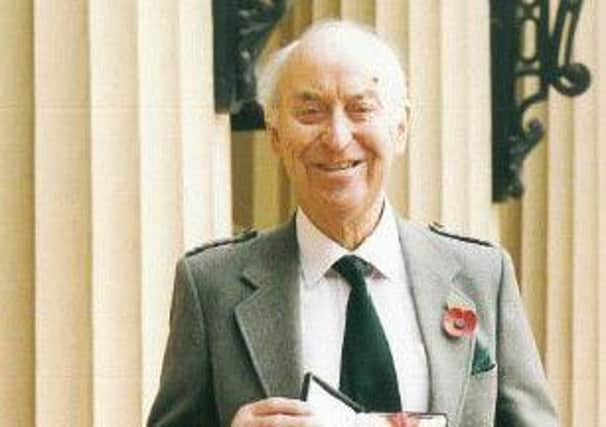OBITUARY: George N. Donaldson


George Donaldson was a leading figure in the Scottish timber trade and played a key role in building one of Scotland’s most successful family companies.
He was the fourth in a direct line of eldest sons to run the Fife firm of James Donaldson and Sons – founded in 1860. It was, when he joined, a medium-sized company of sawmills at Leven and Tayport. With the help of his eldest son Neil and their loyal staff he turned it into Scotland’s largest independent timber merchant, with sales in excess of £132 million and 23 sites across the United Kingdom.
Advertisement
Hide AdAdvertisement
Hide AdHe father, Victor, was a veteran of the Somme while his mother, Jean Robertson, was a scion of the Paisley jam-making dynasty.
Like his father, sons, and grandsons, he was educated at Merchiston Castle School in Edinburgh where he developed a keen interest in cricket and made numerous friendships which were to endure for 70 years.
He left in 1944 for Mons Officer Cadet School at Aldershot, and was commissioned into the Black Watch early in 1945. His unit was sent to the Far East, but he broke a leg in training and to his disappointment was left behind.
While recuperating he was introduced to the distinctly unmilitary recreation of fine needlework. This hobby absorbed his attention for much of his life, and his intricate tapestries are now collectors’ items. The discipline taught him absolute focus and attention to detail – character traits which stayed with him throughout his life.
Advertisement
Hide AdAdvertisement
Hide AdThe war against Japan was over by the time he was fit for duty but he was promptly sent to fight a very different enemy in Egypt. Malarial mosquitoes in the Nile delta represented a significant health risk. His mission – for which he was supremely unqualified – was to eradicate them. A degree of control, at least, was established.
While on leave he visited the Holy Land, narrowly missing the bombing of the King David Hotel in Jerusalem.
After demobilisation, he joined family firm in 1948 and was immediately sent to learn the trade at the sharp end, in the forests of Scandinavia. He returned fluent in Swedish and with a healthy dislike of smoked salmon –then the staple food of the forest workers throughout the long, dark and cold winters.
Back in Scotland he commenced the modernisation of the firm, recognising early the importance of new technologies. The company horses were sold off. He was the first Scottish timbre merchant to invest in a fork lift truck.
Advertisement
Hide AdAdvertisement
Hide AdIn 1969 he succeeded his father as managing director, leading the company through the industrial minefield of the 1970s. Many other firms in the sector were unable to survive the rigours of the period, but with the company now it is second century he was determined to preserve its independence.
The timbre trade was his destiny, and he loved it. He wanted to put something back into the industry which had given him so much pleasure. When his eldest son joined the firm he saw his opportunity.
He served first as president of the Scottish Timber Merchants’ and Sawmillers’ Association, then as president of the Scottish Timber Trades’ Association (UK). He became only the second Scot to preside over the London-based Timber trade Federation and continued a family tradition of chairing the board at Crieff Hydro.
His efforts earned his widespread respect. He was held in great affection across the community, but especially in his own company – which he regarded as an extension of his family. He had no known enemies.
Advertisement
Hide AdAdvertisement
Hide AdHe was a devout man – an elder of the kirk for almost 30 years – who led by example; his moral compass never wavered. Despite being one of Scotland’s most successful businessmen he took a salary equivalent to only three times that of his labourers.
George Donaldson was a man of unassuming modesty, always surprising when his efforts were recognised, and never more so than in 2000 when he was summoned to Buckingham Palace to be invested as a CBE by the Queen.
In 1953 he married Fiona Todd, a childhood playmate whom he had known virtually from birth. The marriage was extremely happy: together they created an exquisite garden at their home in Upper Largo. They enjoyed a quiet and very peaceful life.
Her death in 2009 was a huge blow. His son, Neil, succeeded him in the business and is current chairman. There are four grandchildren, two of whom now serve on the board of James Donaldson and Sons – the sixth generation to do so. There are six great-grandchildren.